Thursday, September 3, 2015WRM# 15-33
The WRMarketplace is created exclusively for AALU Members by the AALU staff and Greenberg Traurig, one of the nation’s leading tax and wealth management law firms. The WRMarketplace provides deep insight into trends and events impacting the use of life insurance products, including key take- aways, for AALU members, clients and advisors.
TOPIC: Paying Compensation to IRA Holder from IRA-Owned Business = Prohibited Transaction.
MARKET TREND: In the current economic environment, individuals are seeking ways to increase retirement savings. Yet receipt of compensation from an active business owned through a tax-deferred retirement vehicle, like an IRA, could be deemed a prohibited transaction.
SYNOPSIS: In Ellis v. Commissioner, an IRA holder used the assets of his IRA to acquire a 98% ownership interest in a business he organized. After the IRA’s acquisition of the business, the IRA holder ran the business and paid himself compensation for doing so. The courts found that the payment of the compensation was a prohibited transaction, which resulted in the disqualification of theIRA.
TAKE AWAYS: The extent to which one can be involved with the business operations of an operating business owned by an IRA held by the individual is unclear. Drawing compensation from the business, however, can jeopardize the qualified status of the IRA.
MAJOR REFERENCE: Ellis v. Commissioner, No. 14-1310 (8th Cir.) (June 5, 2015).
Many individuals hold IRAs with substantial assets, which frequently represent accumulations that were built up in qualified plans maintained by former employers. Occasionally, the IRA holders wish to access the funds in their IRAs to help them start new business endeavors. While recent case law indicates that it is permissible to acquire a new business with IRA proceeds, it may not be permissible for the business owner to pay himself compensation from an IRA-owned business without jeopardizing the IRA’s qualified status.
CASE BACKGROUND
In 2005, Terry Ellis directed that $319,500 of his IRA (which had been rolled over from his prior employer’s profit sharing plan) be used to acquire a 98% ownership interest in CST Investments, LLC (“CST”). CST intended to operate a used car sales business, with Ellis as its general manager. As stated by the Tax Court in its earlier ruling,1Ellis “formulated a plan in which he would use his retirement savings as startup capital for a used car business,” which would provide him with his primary source of income. Consistent with that approach, Ellis had CST pay him compensation of $9,754 in tax year 2005 and $29,263 in tax year 2006.
The IRS asserted that Ellis engaged in a prohibited transaction that disqualified his IRA when he (1) caused his IRA to engage in the sale and exchange of membership units in CST in 2005 and (2) caused CST to pay him compensation in 2005 and 2006.
PROHIBITED TRANSACTIONS GENERALLY
Internal Revenue Code § 4975 prohibits certain transactions, direct or indirect, between a qualified retirement plan or IRA and a disqualified person. Items specifically prohibited include: (1) the sale, exchange, or leasing of any property between a plan and a disqualified person, (2) the transfer to, or use by or for the benefit of, a disqualified person of the income or assets of the plan, and (3) an act by a disqualified person who is a fiduciary whereby he deals with the income or assets of a plan in his own interest or for his own account.
For the purposes of these rules, a “fiduciary” with respect to a plan is defined to include any person who exercises any discretionary authority or discretionary control respecting management of the plan or exercises any authority or control respecting management or disposition of its assets. The definition of a “disqualified person” encompasses a broad range of individuals and entities, including: (1) a fiduciary, (2) a corporation of which 50% or more of the combined voting power of all classes of stock entitled to vote or the total value of shares of all classes of stock is owned directly or indirectly or held by a fiduciary, and (3) a partnership of which 50% of the capital or profits interest is owned directly or indirectly or held by a fiduciary.
Clearly, Ellis was a fiduciary with respect to his IRA, as demonstrated by his ability to direct the investment of the IRA assets into CST.
TAX COURT RULING
IRA’s Acquisition of CST – No Prohibited Transaction. The Tax Court concluded that CST was not a disqualified person at the time of its acquisition by the IRA, based on a previous ruling that a corporation without any shareholders “does not fit within the definition of a disqualified person,” and that an LLC that elected to be taxed as a corporation and that does not yet have any members or membership interests is “sufficiently analogous to a ‘corporation without shares or shareholders’.” Thus, the Tax Court concluded that the IRA’s acquisition of CST could not involve the sale or exchange between a plan and a disqualified person and, therefore, was not a prohibited transaction. This issue was not reconsidered in the appeal to the 8th Circuit.
CST’s Payment of Compensation to Ellis – Prohibited Transaction. The Tax Court found that CST’s payment of compensation to Ellis in 2005 was a prohibited transaction.2The Court reasoned that, in causing CST to pay him compensation, Ellis engaged in the transfer of plan income or assets for his own benefit and, further, that, in authorizing and effecting this transfer, Ellis dealt with the IRA income or assets for his own interest or account. Ellis argued that he was not using plan assets in this manner because the compensation was paid from the account of CST and not from the IRA. The Court rejected this argument and noted that CST was funded almost exclusively with Ellis’ IRA assets, and that the IRA’s investments consisted almost exclusively of ownership interests in CST. Therefore, the Court concluded that “in reality CST and Mr. Ellis’ IRA were substantially the same entity.”
8TH CIRCUIT APPEAL
Upon appeal, the 8th Circuit agreed with the prior Tax Court ruling. The appellate court found that “[b]y directing CST to pay him wages from funds that the company received almost exclusively from his IRA, Mr. Ellis engaged in the indirect transfer of the income and assets of the IRA for his own benefit and indirectly dealt with such income and assets for his own interest or account.” The court went on to quote a Department of Labor advisory opinion to the effect that “[I]f a transaction between a [disqualified person] and a plan would be a prohibited transaction, then such a transaction between a [disqualified person] and such corporation will ordinarily be a prohibited transaction if the plan may, by itself, require the corporation to engage in such transaction.” Accordingly, Ellis’s IRA was disqualified as of tax year 2005, the first year in which CST paid him compensation.
ANALYSIS
Following Ellis, compensation payments to an IRA holder from a business owned by his or her IRA may constitute a prohibited transaction if the IRA is predominantly or almost exclusively invested in the business. However, both the Tax Court and the 8th Circuit appeared to put a good deal of weight on the fact that Mr. Ellis’ IRA did not hold significant other assets apart from the ownership interest in CST, and that CST did not appear to have much in the way of assets beyond the investment from the Ellis IRA. Perhaps a different result would have been reached if CST had generated significant income relative to the initial investment and/or if the Ellis IRA held significant assets other than the CST interest; in such a case, perhaps a court would not find that the business and the IRA owning it “were substantially the same entity.”
Notwithstanding that possibility, the Ellis case stands as a warning against paying compensation to an IRA holder from a business owned by his or her IRA. Any IRA holder considering such payments should consult with qualified counsel. However, not all such transactions are problematic. Passive investment in the business is acceptable. Performing services for the business without compensation also should not be problematic.
TAKE AWAYS
The extent to which one can be involved with the business operations of an entity owned by an IRA held by the individual is unclear. Drawing compensation from the business, however, can jeopardize the qualified status of the IRA.
NOTES
1 Ellis v. Commissioner, T.C. Memo 2013-245 (October 29, 2013).
2 Because engaging in a prohibited transaction causes the disqualification of the IRA as of the tax year in which the prohibited transaction occurs, there was no need to consider whether the payment of compensation in 2006 was a prohibited transaction, because the IRA was disqualified as of the time that compensation was paid.
DISCLAIMER
This information is intended solely for information and education and is not intended for use as legal or tax advice. Reference herein to any specific tax or other planning strategy, process, product or service does not constitute promotion, endorsement or recommendation by AALU. Persons should consult with their own legal or tax advisors for specific legal or tax advice.
The AALU WRNewswire and WRMarketplace are published by the Association for Advanced Life Underwriting® as part of the Essential Wisdom Series, the trusted source of actionable technical and marketplace knowledge for AALU members—the nation’s most advanced life insurance professionals.
WRM #15-33 was written by Greenberg Traurig, LLP
Jonathan M. Forster
Martin Kalb
Richard A. Sirus
Steven B. Lapidus
Rebecca Manicone
Counsel Emeritus
Gerald H. Sherman 1932-2012
Stuart Lewis 1945-2012






